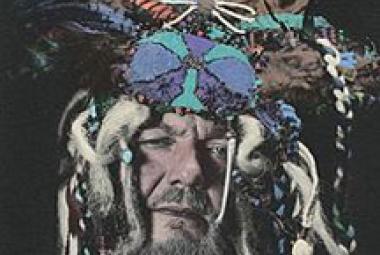THE GRATEFUL DEAD
The Grateful Dead is an American rock band formed in 1965 in Palo Alto, California. The band was known for its unique and eclectic style, which fused elements of rock, folk, bluegrass, blues, reggae, country, improvisational jazz, psychedelia, and space rock, and for live performances of long musical improvisation. “Their music”, writes Lenny Kaye, “touches on ground that most other groups don’t even know exists.” The Grateful Dead have sold more than 35 million albums worldwide. The fans of the Grateful Dead, some of whom followed the band from concert to concert for years, are known as “Deadheads” and are known for their dedication to the band’s music. Their Barton Hall Concert at Cornell University (May 8, 1977) was added to the Library of Congress’s National Recording Registry. (More from Wikipedia)
Talking about “death” in the name is a good way to make it clear your band means business, and there have been several over the years. The Grateful Dead is the best known of course; even today, when you mention “the Dead”, I think most everyone knows who you mean. I was living in San Francisco when Jerry Garcia passed away in 1995, and that was a sad day that also spelled the end of the band. The Grateful Dead have a host of musical influences (it might be easier to name musical styles that they haven’t borrowed from), and they were renowned for long improvisational passages during their concerts. Unlike most artists – Bob Dylan, for one – the Dead openly welcomed bootleg recordings of their concerts, and they would set aside a section of the stage for bootleggers to place their microphones to ensure good quality. No Dead concert is quite the same as any other; I once saw an advertisement for an album consisting of an amalgamation of dozens of live versions of a single song (“Dark Star”) into an extended set that went on for something like 90 minutes. (I finally looked it up: It is 110 minutes long, and the two-CD album is called Grayfolded). And the legions of fans called “Deadheads” that followed the band in caravans around the country is a story that itself approaches legendary status.
(July 2012)
* * *















